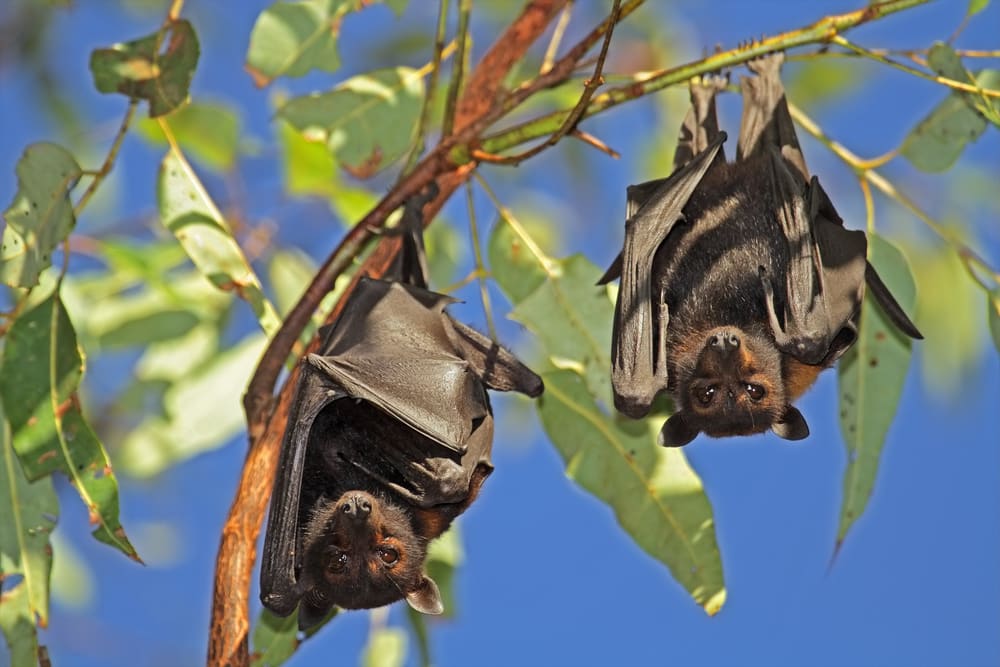Scientists involved in the search for the source of SARS-CoV-2 have pointed to a “jump” from bats occurring in and around Wuhan, China. Whether the virus moved from bats into people directly or if it traveled through an intermediate species was a subject of great debate in the scientific community. Previous forms of coronaviruses, such as SARS-CoV or MERS, traveled from bats through civet cats or camels, and during the early stages of the COVID-19 pandemic, scientists looked at pangolins as a possible intermediary between bats and humans.
This debate may be over according to new findings from a team of researchers in the United Kingdom, United States and Belgium. According to an article in SciTech Daily based on a paper in PLOS Biology, the virus causing COVID-19 likely jumped directly from bats to humans. Perhaps most surprising is that scientists found that the genetic changes that make the virus more transmissible in humans likely occurred before the jump.

The Makings of a “Generalist” Virus
When a virus jumps to a new host, it typically takes time to acclimate before it becomes adept at spreading readily among the new host species. For many viruses the time it takes for this to occur is a natural means to control the spread, as it often keeps transmission from happening or keeps infections limited to a specific geographic area.
The research team led by David Robertson from the MRC-University of Glasgow Centre for Virus Research in Scotland and Sergei Pond from the Institute for Genomics and Evolutionary Medicine at Temple University in Philadelphia studied hundreds of thousands of virus genomes sequenced between December 2019 and November 2020. While they found moderate evidence from early in the pandemic that SARS-CoV-2 adapted to a small extent while in humans, they concluded that the most significant genetic mutations that made SARS-CoV-2 so transmissible occurred while still in bats.
To support this, the researchers examined the lineage of SARS-CoV-2 and RmYN02, a similarly structured bat virus that shares a common ancestor. RmYN02 has a recombinant structure that shows clear evidence of coinfection and evolution in bats without involvement of other species. This aspect of SARS-CoV-2 lineage set the stage for a “generalist” virus that can jump from bat to human hosts with a ready-made ability to easily infect humans and other mammals.
Starting Strong, Becoming Stronger?
While the SARS-CoV-2 virus may have entered with the ability to transmit more easily, it continues to evolve slowly. Mutations including those that resulted in the Alpha (B.1.1.7) and Beta (B.1.251) variants were circulating at the time and were examined as a part of the study. The researchers believe these early changes resulted when the virus spread through people who had existing immunity from previous infections (as opposed to immunity from the vaccines which were not yet available). This, in addition to exposure to immunocompromised people with longer-term infections, resulted in variants that evaded any previously existing immune response.
Now, vaccination protects humans from the full impact of COVID-19 – but future variants can diverge to the point where even vaccination will not guarantee protection. Until we effectively keep COVID-19 infections from passing through communities, the variants will continue.
Prevention Now vs. Pressure for a Cure Later
While vaccination is and must remain our primary means to fight SARS-CoV-2, the researchers warn it is important not to lose sight of the dangers of future SARS-CoV viruses. If our new reality includes “generalist” viruses that don’t require time to adapt before spreading readily among new hosts, a future spillover event of a bat-to-human virus could escalate just as quickly as the current pandemic. For this reason, the researchers state that ramping up surveillance and closely monitoring for future SARS-CoV emergence at the human-animal interface is imperative in preventing future pandemics.
Did you enjoy this blog post? Check out our other blog posts as well as related topics on our Webinar page.
QPS has CLIA-certified and GLP-compliant laboratories ready to fast-track your novel coronavirus and COVID-19 RT-qPCR/QPCR and Serological Assays and vaccine development programs. Since 1995, QPS has provided discovery, preclinical, and clinical drug development services. An award-winning leader focused on bioanalytics and clinical trials, QPS is known for proven quality standards, technical expertise, a flexible approach to research, client satisfaction, and turnkey laboratories and facilities. For more information, visit https://www.qps.com/coronavirus/ or email info@qps.com.







